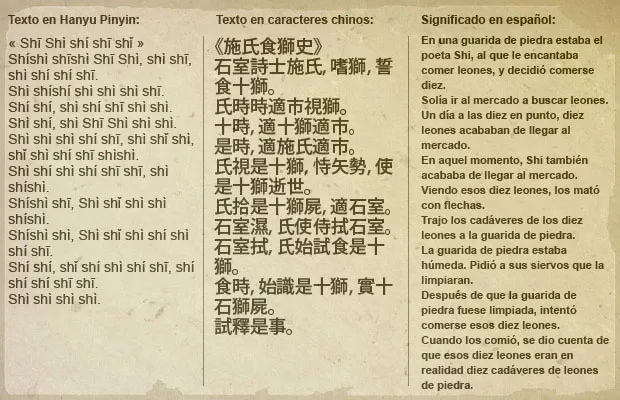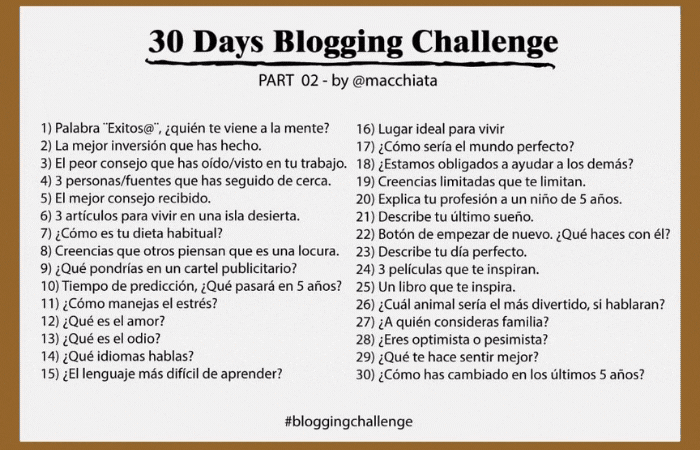Hola de nuevo hivers, espero se encuentre super bien. Cada día nuestra plataforma va creciendo mas y mas, espero sigan compartiendo sus geniales post.
Puede que no haya experimentado o me haya dado a la tarea de aprender algún idioma muy complejo pero puedo imaginar lo difícil que debe ser aprenderlo.
Sin pensarlo mucho diria que el idioma mas dificl de aprender es el Chino mandarín.
Tengo entendido que es el mas complejo del planeta y tiene todas las razones para serlo, porque hasta si te equivocas un poco con la pronunciación surgiría otra palabra o quizás alguna que ni siquiera existe.
Si con tan solo escuchar a alguien de nacionalidad china que viva por mi zona me enreda muchísimo, el idioma japones me parece mas comprensible porque por alguna razón para mas lento y ademas ver anime me ha hecho aprender un par de cosas.
No sólo se trata de la escritura, sino que también de la pronunciación, y principalmente de los cuatro tonos, que pueden llegar a ser un dolor de cabeza. En los últimos años aprender chino se está volviendo una necesidad para quien busca nuevas oportunidades, principalmente en el mundo de los negocios, y hablarlo es un valor agregado para cualquiera que tome el desafío.
El chino es considerado uno de los idiomas más difíciles del mundo, no sólo por su complejo sistema de escritura, con más de 6.000 caracteres. La pronunciación también es muy difícil, principalmente porque tiene combinaciones de sílabas cuya fonética no conocemos en idiomas de habla latina y, por más que intentamos, nos cuesta mucho diferenciar. A esto hay que sumar los tonos, que pueden llegar a ser una gran complicación para los extranjeros que comienzan a estudiar. Estos tonos son las inflexiones de voz que sirven para distinguir una palabra de otra. Si bien en el chino cantonés son 9 tonos, en el mandarín son oficialmente 4, más un quinto “neutro”. Al escribirlos en “pinyin” –la transcripción fonética con letras de nuestro alfabeto latino- estos son ā, á, ǎ y à (en todas las vocales). Saber los acentos es clave a la hora de hablar, porque éstos hacen la diferencia en el significado de las palabras. Por ejemplo “mā,妈” significa mamá y “mǎ,马” caballo, mientras que “ma,吗” en tono neutro se pone al final de una frase cuando se quiere indicar pregunta (algo así como que dijéramos en voz alta el signo de interrogación). La mayoría de las palabras, aún con el mismo tono, también tienen una gran cantidad de significados, y muchas veces éste sólo se puede deducir por el contexto. Por ejemplo, “nán” puede significar “sur, 南”, “hombre, 男” o “difícil, 难”, entre otros. Como en chino se escriben diferente, en la lectura se puede diferenciar perfectamente, pero en lo oral hay que poner atención al contexto. Si en español palabras homófonas como “siervo” y “ciervo” son excepciones, en chino es lo más común. Por eso, hay que tener mucho cuidado con las metidas de pata. Algunos ejemplos: decir “soy gay”, en vez de decir “soy liebre”, cuando se habla del horóscopo chino, o “tengo que besarte”, en lugar de “tengo que preguntarte”, etc. Aprender chino no es sólo cosa de esfuerzo y constancia, sino que también es necesario tener bastante sentido del humor para soportar las burlas de los chinos cuando te equivocas y no rendirte en el intento. La siguiente es una muestra de lo difícil que es el idioma chino. Se trata de un poema en el cual cada sílaba se pronuncia /shi/. En la primera columna está la pronunciación, luego los caracteres chinos y, finalmente, su traducción al español. Es impresionante!!!
Creo que aqui queda claro mi punto jajajaaj.
Hello again hivers, I hope you are doing great. Every day our platform is growing more and more, I hope you keep sharing your great posts.
I may not have experienced or been given the task of learning any very complex language but I can imagine how hard it must be to learn it.
Without thinking too much I would say that the most difficult language to learn is Mandarin Chinese.
I understand that it is the most complex language on the planet and it has every reason to be, because even if you make a mistake with the pronunciation, another word will come up or maybe a word that doesn't even exist.
If just listening to someone of Chinese nationality who lives in my area makes me very confused, the Japanese language seems more understandable to me because for some reason it is slower and also watching anime has made me learn a couple of things.
It's not just the writing, but also the pronunciation, and mainly the four tones, which can be a headache. In recent years learning Chinese is becoming a necessity for anyone looking for new opportunities, mainly in the business world, and speaking it is an added value for anyone who takes the challenge. *Chinese is considered one of the most important languages in the world.
Chinese is considered one of the most difficult languages in the world, not only because of its complex writing system, with more than 6,000 characters. Pronunciation is also very difficult, mainly because it has combinations of syllables whose phonetics we do not know in Latin-speaking languages and, no matter how hard we try, it is very difficult to differentiate. To this we must add the tones, which can become a great complication for foreigners who begin to study. These tones are the voice inflections used to distinguish one word from another. While in Cantonese Chinese there are 9 tones, in Mandarin there are officially 4, plus a fifth "neutral" tone. When written in "pinyin" -the phonetic transcription with letters of our Latin alphabet- these are ā, á, ǎ and à (on all vowels). Knowing accents is key when speaking, because they make a difference in the meaning of words. For example "mā,妈" means mom and "mǎ,马" means horse, while "ma,吗" in a neutral tone is put at the end of a sentence when you want to indicate question (something like we say out loud the question mark). Most words, even with the same tone, also have a myriad of meanings, and often this one can only be deduced by context. For example, "nán" can mean "south, 南", "man, 男" or "difficult, 难", among others. As in Chinese they are written differently, in reading you can differentiate them perfectly, but in oral you have to pay attention to the context. If in Spanish homophonous words like "siervo" and "ciervo" are exceptions, in Chinese it is the most common. Therefore, you have to be very careful with blunders. Some examples: saying "I am gay", instead of saying "I am a hare", when talking about the Chinese horoscope, or "I have to kiss you", instead of "I have to ask you", etc. Learning Chinese is not only a matter of effort and perseverance, but it is also necessary to have a good sense of humor to endure the teasing of the Chinese when you make a mistake and not give up trying. The following is a sample of how difficult the Chinese language is. It is a poem in which each syllable is pronounced /shi/. In the first column is the pronunciation, then the Chinese characters, and finally its English translation. It is impressive!!! [Source
I think my point is clear here hahahahahah.

再见=Adiós
Nos vemos en el próximo post
再见=Goodbye
See you in the next post




